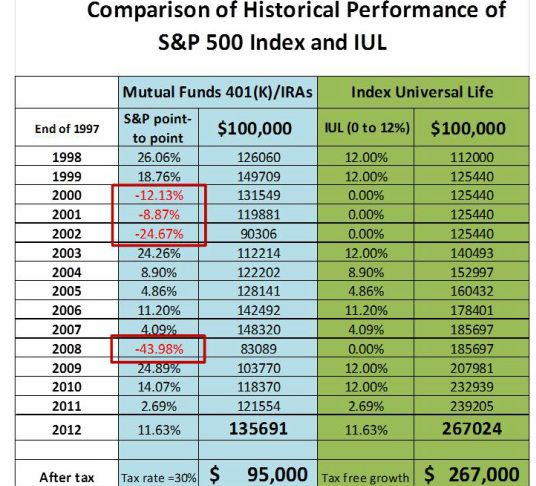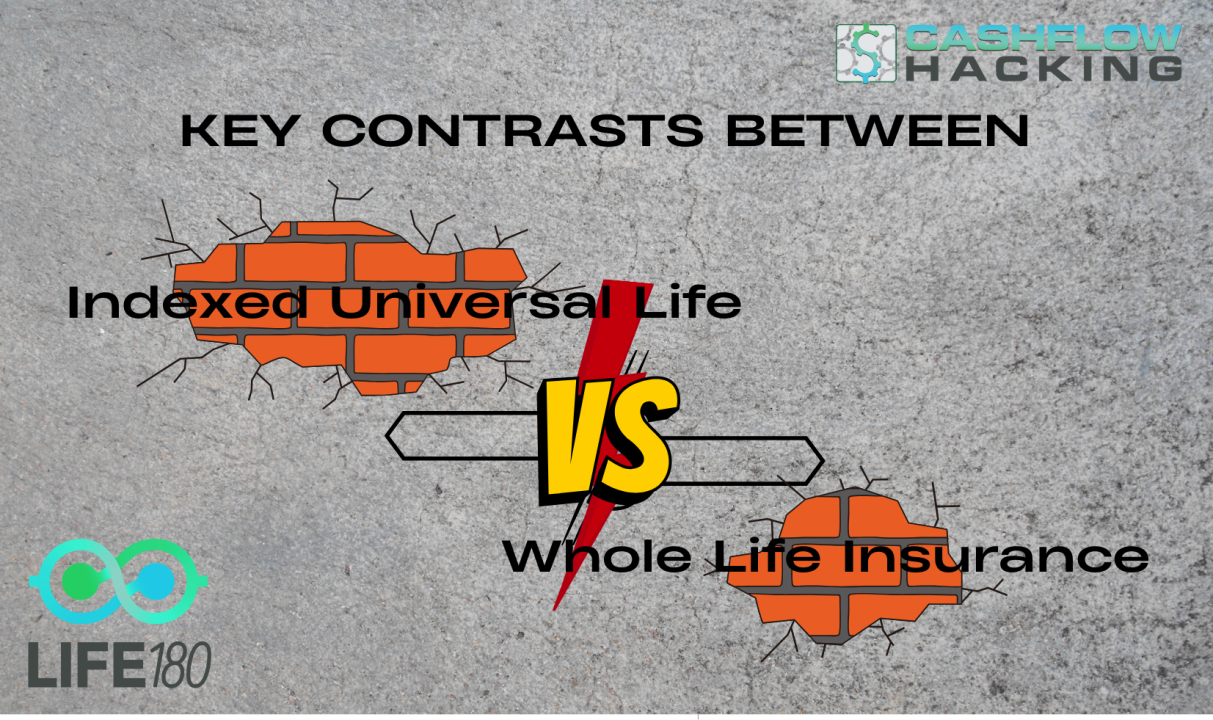All Categories
Featured
Table of Contents
- – What is the difference between Iul Companies a...
- – Who provides the best Indexed Universal Life A...
- – What happens if I don’t have Iul Calculator?
- – What should I know before getting Iul Protect...
- – What happens if I don’t have Iul Death Benefit?
- – Who offers flexible Indexed Universal Life P...
Indexed Universal Life (IUL) insurance is a kind of long-term life insurance policy policy that combines the functions of conventional universal life insurance policy with the possibility for money value development linked to the efficiency of a stock exchange index, such as the S&P 500 (IUL death benefit). Like various other forms of permanent life insurance policy, IUL gives a death benefit that pays out to the beneficiaries when the insured passes away
Cash value accumulation: A section of the costs settlements enters into a cash money worth account, which gains rate of interest gradually. This money value can be accessed or obtained versus throughout the policyholder's life time. Indexing alternative: IUL policies provide the possibility for cash worth development based on the performance of a supply market index.
What is the difference between Iul Companies and other options?
Similar to all life insurance coverage products, there is also a collection of risks that insurance policy holders need to recognize prior to considering this kind of policy: Market danger: Among the primary threats related to IUL is market threat. Given that the cash value development is linked to the efficiency of a stock exchange index, if the index chokes up, the cash money value may not grow as expected.

Adequate liquidity: Policyholders need to have a stable economic scenario and be comfy with the exceptional repayment requirements of the IUL plan. IUL permits versatile premium repayments within certain limitations, but it's essential to preserve the plan to ensure it accomplishes its desired purposes. Passion in life insurance policy coverage: People who need life insurance coverage and a rate of interest in money worth development might discover IUL attractive.
Prospects for IUL need to have the ability to comprehend the mechanics of the policy. IUL might not be the best alternative for people with a high resistance for market danger, those who prioritize inexpensive investments, or those with more prompt economic requirements. Consulting with a certified financial expert that can supply tailored guidance is necessary before thinking about an IUL policy.
All registrants will get a schedule invite and web link to sign up with the webinar via Zoom. Can not make it live? Register anyway and we'll send you a recording of the discussion the following day.
Who provides the best Indexed Universal Life Account Value?
You can underpay or avoid premiums, plus you might be able to readjust your death advantage.
Cash money worth, along with potential growth of that worth via an equity index account. An option to designate component of the cash money value to a fixed rate of interest alternative.
Insurance policy holders can make a decision the percent alloted to the repaired and indexed accounts. The value of the chosen index is videotaped at the beginning of the month and compared to the worth at the end of the month. If the index increases throughout the month, passion is included in the cash value.
The 6% is multiplied by the cash value. The resulting rate of interest is added to the cash money value. Some plans compute the index obtains as the sum of the adjustments for the duration, while various other policies take approximately the everyday gains for a month. No passion is credited to the money account if the index goes down as opposed to up.
What happens if I don’t have Iul Calculator?
The rate is set by the insurance provider and can be anywhere from 25% to even more than 100%. (The insurance company can likewise transform the participate rate over the lifetime of the plan.) For instance, if the gain is 6%, the involvement price is 50%, and the present cash money value total is $10,000, $300 is included in the money worth (6% x 50% x $10,000 = $300).
There are a variety of pros and cons to consider before acquiring an IUL policy.: Just like basic global life insurance policy, the insurance policy holder can enhance their costs or reduced them in times of hardship.: Amounts attributed to the cash money worth expand tax-deferred. The cash money worth can pay the insurance policy costs, enabling the insurance policy holder to reduce or quit making out-of-pocket premium repayments.
What should I know before getting Iul Protection Plan?
Many IUL plans have a later maturation date than various other kinds of global life plans, with some finishing when the insured reaches age 121 or even more. If the insured is still active during that time, plans pay the death benefit (but not normally the money worth) and the earnings may be taxable.

: Smaller policy stated value do not supply much advantage over normal UL insurance coverage policies.: If the index decreases, no rate of interest is credited to the cash money value. (Some plans offer a reduced assured price over a longer duration.) Various other investment vehicles use market indexes as a benchmark for performance.
With IUL, the goal is to benefit from upward movements in the index.: Due to the fact that the insurance policy business just purchases options in an index, you're not directly purchased stocks, so you don't benefit when business pay rewards to shareholders.: Insurers cost costs for managing your cash, which can drain cash money value.
What happens if I don’t have Iul Death Benefit?

For the majority of people, no, IUL isn't far better than a 401(k) - IUL vs whole life in terms of saving for retirement. The majority of IULs are best for high-net-worth individuals trying to find ways to lower their gross income or those who have actually maxed out their various other retirement choices. For everybody else, a 401(k) is a better investment vehicle because it does not bring the high fees and premiums of an IUL, plus there is no cap on the quantity you may earn (unlike with an IUL plan)
While you may not shed any money in the account if the index decreases, you will not make passion. If the marketplace turns favorable, the profits on your IUL will certainly not be as high as a typical investment account. The high cost of premiums and fees makes IULs costly and significantly less economical than term life.
Indexed universal life (IUL) insurance policy offers cash worth plus a death advantage. The cash in the money worth account can gain passion via tracking an equity index, and with some frequently designated to a fixed-rate account. Indexed universal life plans cap how much cash you can build up (commonly at much less than 100%) and they are based on a potentially unpredictable equity index.
Who offers flexible Indexed Universal Life Policy plans?
A 401(k) is a much better choice for that objective since it doesn't lug the high fees and premiums of an IUL policy, plus there is no cap on the quantity you might make when spent. Many IUL policies are best for high-net-worth people looking for to decrease their taxable earnings. Investopedia does not offer tax, investment, or financial solutions and guidance.
If you're taking into consideration acquiring an indexed universal life policy, initial talk with an economic consultant who can describe the nuances and provide you a precise image of the real potential of an IUL policy. Make certain you recognize just how the insurer will compute your rate of interest, earnings cap, and fees that may be assessed.
Table of Contents
- – What is the difference between Iul Companies a...
- – Who provides the best Indexed Universal Life A...
- – What happens if I don’t have Iul Calculator?
- – What should I know before getting Iul Protect...
- – What happens if I don’t have Iul Death Benefit?
- – Who offers flexible Indexed Universal Life P...
Latest Posts
Index Insurance Company
What Is Better Term Or Universal Life Insurance
Guaranteed Universal Life Insurance Companies
More
Latest Posts
Index Insurance Company
What Is Better Term Or Universal Life Insurance
Guaranteed Universal Life Insurance Companies